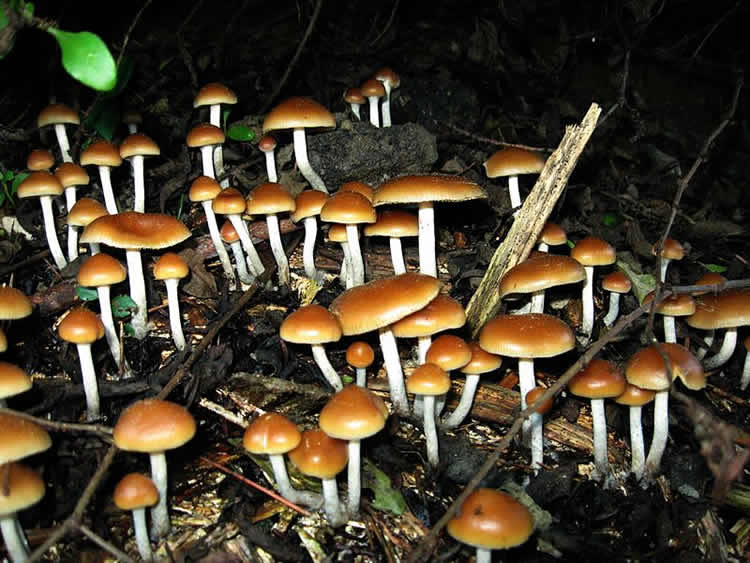A single dose of psilocybin, the major hallucinogenic component in magic mushrooms, induces long-lasting decreases in anxiety and depression in patients diagnosed with life-threatening cancer according to a new study presented today at the annual meeting of the American College of Neuropsychopharmacology.
Patients who receive a cancer diagnosis often develop debilitating symptoms of anxiety and depression. Reports from the 1960s and 1970s suggest that hallucinogenic drugs such as LSD may alleviate such symptoms in cancer patients, but the clinical value of hallucinogenic drugs for the treatment of mood disturbances in cancer patients remains unclear. In this new study, Roland Griffiths and colleagues from the Johns Hopkins University School of Medicine investigated the effects of psilocybin on symptoms of anxiety and depression in individuals diagnosed with life-threatening cancer. Five weeks after receiving a dose of psilocybin sufficiently high to induce changes in perception and mystical-type experiences, patients reported significantly lower levels of anxiety and depression compared with patients that received a low dose of the drug. The positive effects on mood persisted in the patients at 6 month follow-up.
The authors suggest that a single dose of psilocybin may be sufficient to produce enduring decreases in negative mood in patients with a life-threatening cancer.

Source: Laura Bersacola-Hill – ACNP
Image Source: The image is credited to Alan Rockefeller and is licensed CC BY-SA 3.0
Original Research: The research will be presented at the ACNP 54th Annual Meeting in Hollywood, Florida.






